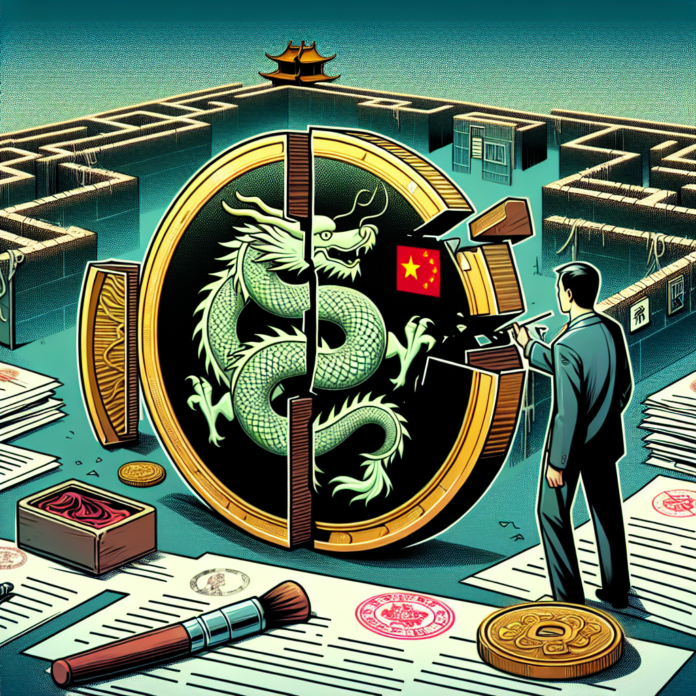China Intensifies Crypto Crackdown with New Forex Regulations
China Escalates Crypto Crackdown with New Forex Rules
In a significant move to intensify its crackdown on cryptocurrency activities, China has introduced new regulations concerning foreign exchange (forex) transactions. These measures are part of the country’s broader strategy to discourage trading in digital currencies and to maintain control over its financial system.
The new rules specifically target cross-border transactions and aim to curb the outflow of capital that often accompanies crypto trading. By imposing stricter guidelines on forex dealings, the Chinese government is attempting to prevent the use of cryptocurrencies as a means to bypass its capital controls. This is particularly relevant in light of the growing interest in decentralized finance (DeFi) platforms, which can facilitate anonymous transactions and potentially undermine state regulations.
Background on China’s Crypto Regulations
China has a history of strict regulations regarding cryptocurrencies. In 2017, the government banned initial coin offerings (ICOs) and shut down domestic cryptocurrency exchanges. Despite a temporary easing of restrictions, the Chinese authorities have recently ramped up enforcement actions against crypto mining and trading activities. This has included shutting down mining operations across the country, which were previously concentrated in regions with cheap electricity.
The latest forex regulations are a continuation of this trend, reflecting the government’s concerns about financial stability and the risks posed by unregulated digital currencies. The People’s Bank of China (PBoC) has been vocal about the potential dangers of cryptocurrencies, citing issues such as fraud, money laundering, and market volatility.
Impact on the Crypto Market
The new forex rules are expected to have a significant impact on the crypto market, both domestically and internationally. Traders and investors who rely on Chinese exchanges may find it increasingly difficult to conduct transactions, leading to a potential decline in trading volumes. This could also encourage traders to seek alternative platforms outside of China, potentially shifting the global landscape of cryptocurrency trading.
Moreover, the crackdown could further drive innovation in the sector, as entrepreneurs and developers look for ways to navigate the regulatory environment. Decentralized exchanges (DEXs) and privacy-focused cryptocurrencies might see increased interest as individuals seek to maintain their financial autonomy.
Global Implications
China’s stringent measures could have far-reaching implications beyond its borders. As one of the largest markets for cryptocurrencies, China’s actions may influence regulatory decisions in other countries. Governments worldwide are closely monitoring developments in the crypto space, and China’s approach might serve as a model—or a warning—depending on the outcomes.
Additionally, the ongoing tensions between China and the United States regarding technology and finance could further complicate the global crypto landscape. As nations grapple with the rise of digital currencies, the need for international cooperation and regulatory harmonization becomes increasingly critical.
In conclusion, China’s latest forex regulations signify a robust effort to control the cryptocurrency market and safeguard its financial system. As these rules take effect, the global crypto community will be watching closely to see how they reshape trading practices and regulatory approaches around the world.


